
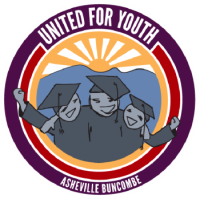
United for Youth (U4Y) is a cradle-to-career, place-based partnership forged between Asheville City and Buncombe County Schools, representatives of local governments, early education, social service, higher education, youth services community partners, and others.
United for Youth partners work together with youth and family leadership to ensure educational outcomes are determined by the abundance and accessibility of opportunities in our community, the strength of our collaborations, and are never again predictable based on a student's race, home language, family income, or any other dimension of identity.
Our Bold Community Goal
"By 2035, ALL Asheville City and Buncombe County students graduate
from High School ready and fully prepared to pursue their goals and dreams."
Our Collective Responsibility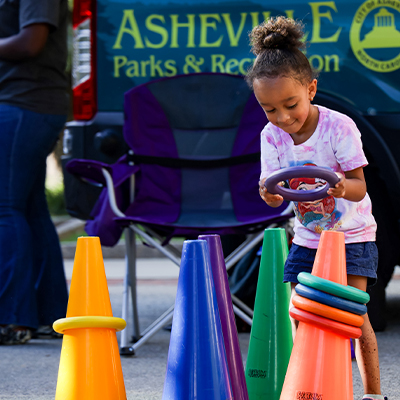
We work together to ensure educational success is determined by:
- Accessible Opportunities that empower all students
- Strong Collaborations among organizations, families, educators, and the broader community
- Data-Driven Practices that seek to identify, reduce, and eliminate disparities based on race, language, income, or identity
- Systems-Focused Strategies alongside programmatic approaches ensure that aligned investments and policy solutions are key components of this effort
The ACHIEVEMENT GAP is an academic marker of how different groups of students are performing within the school setting on traditional measures such as 3rd-grade reading or 8th-grade math.
The OPPORTUNITY GAP is the difference in access to opportunities (eg, summer camps, mentors, tutors, interstate travels, etc.) that exists between different groups of students. These opportunities, or the lack of them, can often influence academic achievement and are something a community can make a real difference in.
It is our shared responsibility as a community to unite for youth and increase access to these opportunities.
The United for Youth Leadership Team is an intergenerational group that guides overall strategy and makes decisions on behalf of the network. The team identified a central Focus Area: Caring, Trusted, and Engaged Adults in youths’ lives.
This Focus Area was selected after reviewing several community indicators, including the Community Data Dashboard, UWABC-led community conversations, reparations education, and considerations of overall impact, scope, and feasibility.
After a thoughtful review, the Leadership Team affirmed this Focus Area, understanding that it is our responsibility to answer the call of young leaders and ensure that our community is prepared for them. Together, we must rally our peers to be Caring, Trusted, and Engaged Adults in the lives of all youth across our community.
To achieve the Bold Community Goal through the Focus Area of Caring, Trusted, and Engaged Adults in youths’ lives, the Leadership Team established grade-level opportunity objectives. Each objective emphasizes increasing opportunities for youth through community and adult engagement.
Some objectives will require the development of an independent workgroup, called an Impact Team, while others will involve U4Y Backbone Staff working alongside existing group efforts to support community alignment amongst related initiatives and their respective goals.
Birth — 5 Years Old:
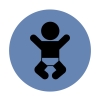
Parents and caregivers can easily access resources within their communities that help provide a nurturing and healthy environment.
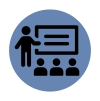
Career pathways for Early Education attract new, diverse, and motivated teachers.
K— 6th Grade:
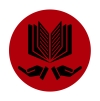
Dedicated, highly-trained educators ensure foundational reading skills that bring all students to grade-level reading.
Grades 4th — 9th:
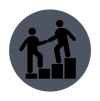
Culturally-reflective adult and near-peer mentors and mentoring opportunities offer guidance, support, and encourage dreaming.
Grades 10th +:
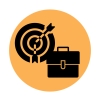
Quality, well-supported, paid internships and apprenticeship pathways offer practical experience and career preparation.

Support networks provide guidance and resources for college-bound students before and during higher education enrollment.
Where independent impact teams are developed, groups will communicate regularly with the United for Youth Leadership Team to:
- Identify policy barriers and implications
- Develop and track milestones
- Identify costs and financial barriers
- Lead and collaborate on implementation plans
- ensure partner alignment
Organizational Structure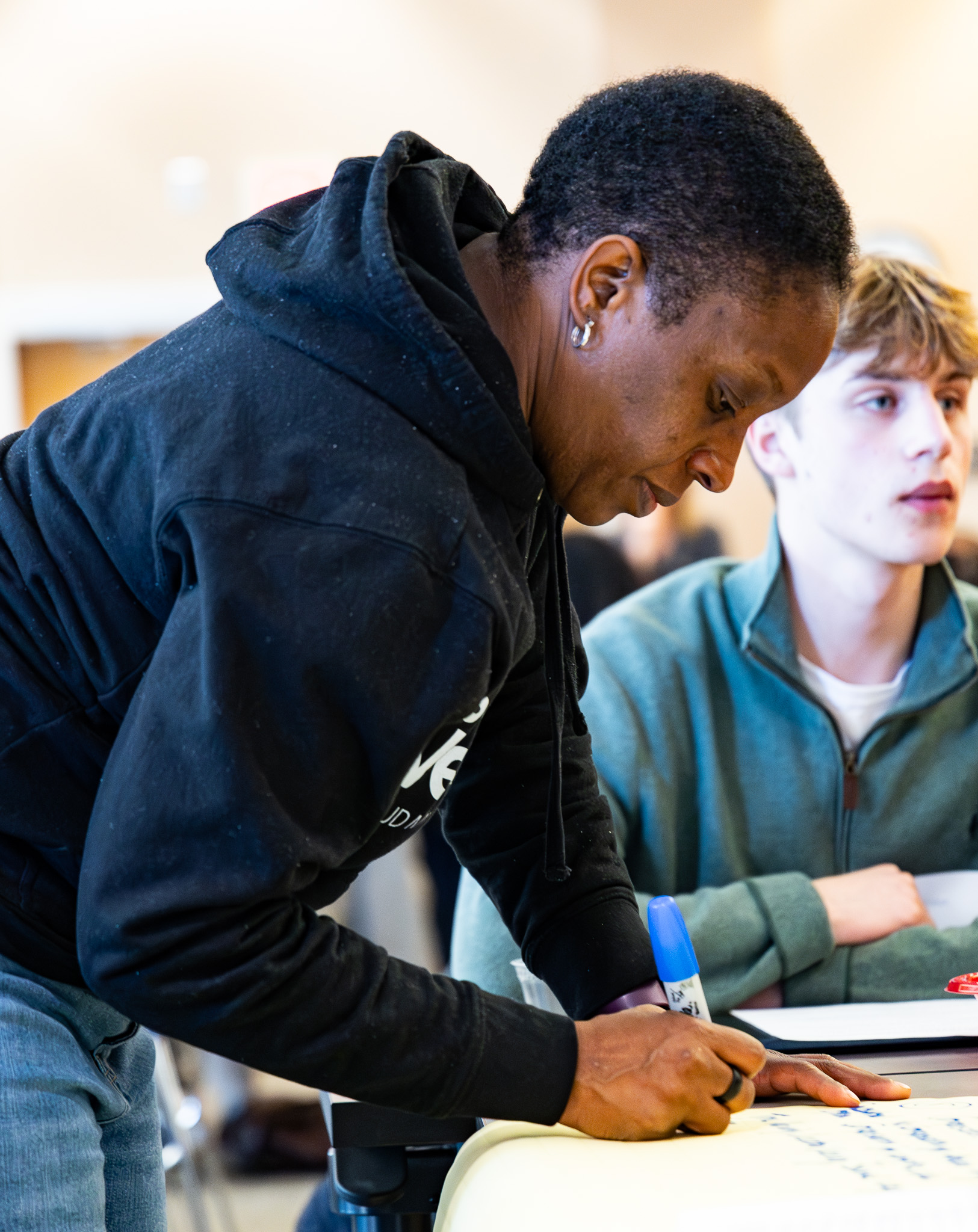
A big part of what makes United for Youth strong is the Leadership Team. This group is made up of people from schools, nonprofits, government, and the community — including youth leaders. to learn more about the design process for this community-built team, click HERE.
The Team:
YOUTH:
- George Johnson, UNCA
- Valerie Brady, TC Roberson HS
ELECTED At-large Seats
- Jasmine Bright, The Christine W. Avery Learning Center
- Tiffany DeBellott, Center for Participatory Change
- Niconda Garcia, Owner, Change the Rubric, Ltd.
- Michael L. Hayes, UMOJA
- Amber King, LGBTQ+ Youth Advocate, UNCA Steam Studio
- Kyla Morton, The Christine W. Avery learning Center
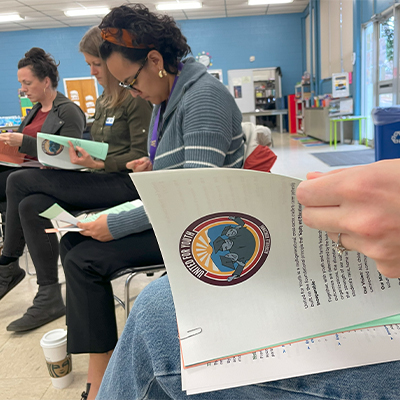
- Copland Rudolph, Asheville City Schools Foundation
- Toshia Sitton, Read to Succeed
APPOINTED (Seat Represented)
- Dr. Maggie Fehrman, Asheville City Schools, Superintendent
- Kim Robison, Asheville City Schools, Executive Director Student Services
- Dr. Donna Lanahan, Buncombe County Schools, Director of Secondary Education
- Lindsay Rice, Buncombe County Schools, Vice Principal, A.C. Reynolds Middle
- Rachael Swayer, Buncombe County Government, Director, Strategic Partnerships
- Dr. Amieris Lavender, Reparations, Founder & Managing Partner, LoveJoyLiveration Community Relations Firm
- Dan Leroy, United Way of Asheville and Buncombe County, President & CEO, Backbone Organization
- Sala Menaya-Merritt, City of Asheville, Director, Human Relations, Anti-Discrimination and Compliance
The Council of Young Advocates (CYA) is an all-youth team within the United for Youth Leadership Team that represents student voices for youth in Asheville and Buncombe County. Along with sitting on and advising the U4Y Leadership Team, CYA meets separately to build advocacy skills within these youth while also planning and executing a community project that is designed by members of the CYA.
- Makes sure the work stays focused and fair
- Analyzes data to see what’s working and what needs to improve
- Listens to students and families and lifts their voices
- Helps remove big problems — like unfair rules or lack of resources
- Makes sure every part of the work is connected and moving forward
United for Youth is NOT a UWABC program. UWABC serves as the “backbone” organization for this effort.
As the Backbone Organization, UWABC drives this system-wide initiative by:
- Community Engagement and Network Building
- Visioning and Goal Setting
- Partnership Coordination and Communications
- Fund Development and Resource Alignment
- Measuring Community-Level Impact
- Building Partner Capacity
- Organizing and Advocacy for Systems Change
Watch
